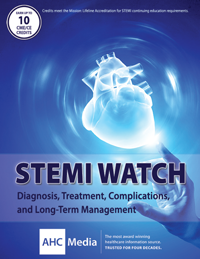Whether They Tell You or Not, Most Patients Probably Use Supplements
October 14th, 2016
NEW YORK – Patients might not tell you about the supplements and vitamins they are taking, but, chances are, more than half of them are using the products.
That’s according to a study appearing in the Journal of the American Medical Association, which indicates that reports of adverse effects or incompatibility with some prescription drugs haven’t stemmed the use of supplements by adults in the United States.
Memorial Sloan Kettering Cancer Center researchers and colleagues analyzed a nationally representative survey finding that supplement use among U.S. adults remained stable from 1999-2012. More than half of adults reported supplement use, but use of multivitamins decreased during the time period.
Consumption of dietary supplement products began to increase between the 1980s and mid-2000s, according to the report, although little previously has been reported about recent trends in supplement use, according to background information in the article.
For the study, researchers employed data from the National Health and Nutrition Examination Survey (NHANES) to examine trends in supplement use among U.S. adults from 1999 through 2012, surveyed over seven continuous two-year cycles. The focus was on use of any supplement products and multivitamins/multiminerals (MVMM), which were defined as a product containing 10 or more vitamins and/or minerals, as well as use of individual vitamins, minerals, and non-vitamin, non-mineral supplements.
NHANES included 37,958 adults — 52% female with an average age of 46 — who had a response rate to the survey of 74%.
Results indicate that, overall, the use of supplements remained stable between 1999 and 2012, with 52% of U.S. adults reporting use of any supplements in 2011-2012. Utilization of MVMM decreased, however, with 37% reporting use in 1999-2000 and 31% reporting use in 2011-2012.
At the same time, vitamin D supplementation from sources other than MVMM increased from 5.1% percent to 19%, while consumption of fish oil supplements increased from 1.3% to 12%. Use of supplements including vitamins C, E, and selenium decreased.
“With the present data, it is clear that the use of supplements among U.S. adults has stabilized,” study authors concluded. “This stabilization appears to be the balance of several opposing trends, with a major contributing downward factor being the decrease in use of MVMM.”
In an accompanying commentary, Pieter A. Cohen, MD, of the Cambridge Health Alliance in Cambridge, MA, and Harvard Medical School in Boston, writes that it now is “well documented that more than half of U.S. adults use supplements. Physicians should include supplements when they review medications with all patients and also consider supplements when symptoms raise the possibility of a supplement-related adverse effect. It is now known that many supplements contain pharmaceutically active botanicals, which can have important clinical effects.”
Cohen cites red yeast rice, yohimbe, and caffeine as all having pharmacological effects, as well as a variety of synthetic drugs that have replaced ephedra as stimulants in many sports and weight loss supplements.

FEATURED RESOURCE


